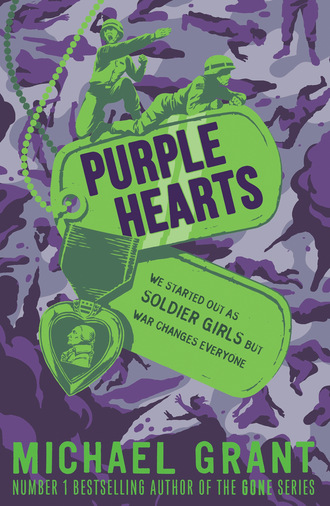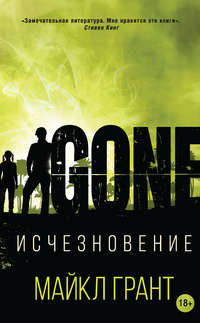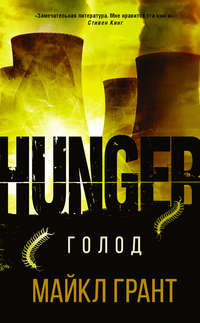
Полная версия
The Front Lines series
“My folks come from Mexico. I come from Utah.”
“Utah, huh? Well, that beats all,” he says and shakes his head. Then he leans forward and extends his hand. “Hank Hobart, from St. Paul, Minnesota. Pleased to meet you.”
She’s been expecting hostility—there are a lot of Texans in the army, and few of them are ready to be civil to Mexicans. So she is non-plussed by his open expression and the outstretched hand. She takes it and feels a softness she’s never felt before in any hand, male or female.
“What do you do, Loopy?”
“Guadalupé,” she corrects. Then, “Or Lupé.”
“Loopy. That’s what I said, isn’t it?” He seems sincere, as though he hears no difference between his pronunciation and hers, which is more loo-pay than his loo-pee.
“Okay, Hank. I live on a cattle ranch.”
His blue eyes go wide and his pale eyebrows rise to comic heights. “You’re a cowgirl?”
“I guess so,” she says, feeling uncomfortable since that title is generally earned by many long years of work. Where she comes from “cowboy” means a whole lot more than major or captain.
“Guess what I do?” Hank asks. He’s tall, lanky, and so pale he’s practically translucent, and he owns an almost comically large nose that belongs on a statue of some noble Roman.
Lupé shakes her head. “No idea.”
“I play trombone in an orchestra.” He mimes moving a trombone slide.
This is so far from anything Lupé might have guessed that for a moment she can only frown and stare.
“You like jazz?” Hobart asks.
Lupé shrugs. “Like Tommy Dorsey?” It’s a lucky guess. There is no radio on the ranch, and what she knows of music is restricted to cowboy tunes and church hymns. But some of her school friends have radios, and she’s heard a few of the big names.
He nods. “Best trombone player around, I guess. Man, if I ever got that good . . . If ever ‘I’m Getting Sentimental Over You’ comes on the radio, sit down and open your ears and, man, that is one cool T-bone.” He has a look on his face that Lupé associates with religious ecstasy. Then he snaps back to reality. “So, where you figure we’re going?”
Lupé shrugs. This is more conversation than she’s had in a long time.
“Reckon we’re going to France,” Hank says. He looks concerned by the idea.
Lupé nods. “Reckon so.”
“Hell, yes, we’re going to France,” another male GI, a big slab of beef with an incongruous baby face, sandy hair and tiny blue eyes interjects. “We’re going to finish off the Krauts. They won’t know what’s hit ’em.” He bounces his legs a bit, either nervousness or anticipation.
Neither Hank nor Lupé is excited at this prospect and conversation dies out. They ride for an hour on roads choked with trucks and jeeps, ammo wagons and half-tracks, 155 Long Tom artillery pieces towed behind trucks, and even Sherman tanks. All of it, everything, is heading southeast.
At last the truck pulls into a new camp with well-ordered tents in endless rows. It looks remarkably like the last camp, and the one before that. The army, Lupé notes, owns a lot of tents.
“Last stop! Everyone off,” the driver yells.
They are met by a woman corporal who appears to be in a permanent state of irritation, rather like Sergeant Bonemaker. The corporal snatches paperwork, glances, and says, “All right, you three are going to Fifth Platoon. Report to Sergeant Sticklin.” In response to their blank, sheepish stares the corporal points and says, “Go that way till you come to the company road, turn right. You know your rights from your lefts, don’t you? Go right till you see a tent with a sign that says Fifth Platoon. Got it? Good. Now get lost.”
The three detailed to Fifth Platoon are Lupé, Hank and the eager fellow with the baby face who is named Rudy J. Chester. He makes a point of the “J.” He’s from Main Line, Philadelphia, and he says that as if it’s supposed to mean something special.
They find the company road, and after some questioning of busy noncoms they find the right tent. Sitting in a camp chair outside the tent are a male staff sergeant with a prominent widow’s peak, pale skin and intelligent eyes, and a woman buck sergeant with her mud-caked boots up on an empty C-ration crate and a tin canteen cup of steaming coffee in her hand.
“Here they are,” the staff sergeant says, at once weary and amused.
“Those are mine?” the woman buck sergeant asks. There is no attempt to disguise a critical, dubious look. “These are what I get in exchange for Cat Preeling?”
“Look at it this way, it’s three for one.”
“Except Cat can handle a BAR and won’t wet herself the first time she hears an 88.” The woman sergeant stands up and now Lupé sees that she has a long, curved knife strapped to her thigh—definitely not army issue.
“Line up,” the woman sergeant says. “No, not at attention, do I look like an officer? Is this a parade ground? I’m Sergeant Richlin. You can call me Sarge or you can call me Sergeant Richlin.”
Lupé looks closely and sees that amazingly the sergeant is quite young, probably no older than she is herself. Sergeant Richlin is a bit taller than Lupé, paled by weeks living with British weather, dark hair chopped man-short, blue eyes alert and probing.
“How about I call you sweetheart?”
This from the big boy from Philadelphia, Rudy J. Chester. He’s grinning, and for a moment Lupé is convinced that Sergeant Richlin will let it go. Then she sees the way Sticklin draws a sharp breath, starts to grin, looks down to hide it, shakes his head slowly side-to-side and in a loud stage whisper says, “The replacements are here.”
There’s the sound of cots being overturned and a rush of feet. A pretty blonde corporal bursts through the tent flap, blinking at the gray light as if she’s just woken up, glances around and says, “Uh oh.” And then, “Geer! Beebee! Get out here. I believe one of the replacements just back-talked Richlin.”
There’s a second flurry of movement and a young man with shrewd eyes, and a big galoot with an impressive forehead come piling out, faces alight with anticipation.
“What’s your name?” Sergeant Richlin asks.
“Rudy J. Chester. Sweetheart.” He grins left, grins right, sees faces that are either appalled or giddy with expectation, and then slowly, slowly seems to guess that maybe, just maybe, he’s said the wrong thing.
Rio Richlin steps up close to him, her face inches from his. He is at least four inches taller and outweighs her by better than fifty pounds. Which is why it’s so surprising that in less time than it takes to blink twice he is on the ground, face down, with his right wrist in Richlin’s grip, his arm stretched backward and twisted, and Richlin’s weight on her knee pressed against his back-bent elbow.
“Oh, come on, Richlin!” the big galoot says. “Should of used the knife!”
The pretty blonde shakes her head in mock disgust. “She’s gone soft, Geer. It’s all this high living.”
Richlin lets Rudy J. Chester writhe and struggle for a few seconds before explaining, “The average human elbow can be broken with just fourteen pounds of pressure, Private Sweetheart. How many pounds of pressure would you guess I can apply against your elbow?”
Chester struggles a bit more before finally saying, “More than fourteen pounds, I guess.”
“More than fourteen pounds I guess, Sergeant Richlin.” She gives his arm a twist that threatens to pop his shoulder out of its socket.
“More than fourteen pounds I guess, Sergeant Richlin!”
Rio releases him. The blonde corporal mimes applause. The big corporal named Geer goes back under cover. Beebee shakes his head and mutters, “I missed the first part. Can we do it over?”
Private Rudy J. Chester gets to his feet.
“Now listen to me, the three of you,” Richlin says. “This is Second Squad, Fifth Platoon, Able Company, 119th Division. This is a veteran division, a veteran platoon. Everyone in this squad has been in combat. You have not. Therefore everyone in this squad outranks you. Are we clear on that?”
Three voices say, “Yes, Sergeant.”
“Okay.” Now Richlin allows her voice to soften. “We have a few days, at best a week, to get you ready for the real thing. The real thing will be like nothing you learned at basic. Whatever ideas you have, get them out of your head, because you know nothing.”
Three heads nod. Lupé thinks, I should have mouthed off and maybe she’d break my arm and send me home.
At the same time she thinks she’s never before met any woman who could convincingly threaten to break a man’s arm. Let alone a freckle-faced gringa who can’t weigh more than a hundred and twenty pounds.
“This is Sergeant Sticklin, the platoon sergeant,” Richlin goes on, explaining in a tone that suggests she’s talking to the slow-witted. “Here’s the way it goes: Franklin Delano Roosevelt gives an order to General Marshall who gives an order to General Eisenhower who gives an order to General O’Callaghan, who gives an order to Colonel Brace, who gives an order to Captain Passey, who gives an order to Lieutenant Horne who gives an order to Stick—Sergeant Sticklin—and then Sergeant Sticklin and I try to figure out how to carry out that order without getting you people killed. Is that about right, Stick?”
“It is,” he allows, mock-solemn.
It might be funny, but it doesn’t feel that way to Lupé. There’s something specific in the way she says killed. It’s not a word to Richlin, it’s a memory.
“Keeping you from getting killed is the main job of a sergeant. When I was a green fool of a private fresh out of basic, I had Sergeant Jedron Cole to keep me from getting killed. He kept me and Stick both from getting killed in Tunisia, and in Sicily and in Italy.”
“Many times,” Stick agrees.
“Now it’s our job to do the same for you. Maybe you don’t care about staying alive to get home again someday, but I suspect you’d prefer to stay alive, so here’s how you do that: you listen to Sergeant Sticklin. You listen to me. You listen to Corporal Geer there.” She crooks a thumb toward the big galoot who has already disappeared back into the tent. “Corporal Geer is my ASL, my assistant squad leader. He and I are going to train the living sh—stuffing out of you in whatever time we have in hopes that you can stay alive long enough to carry Corporal Castain’s extra gear.”
Still not funny, Lupé thinks. Even Rudy J. Chester looks solemn. Hank Hobart looks positively petrified.
“Now get over to Company HQ to process in,” Rio says. “When you’re done, grab some chow and get back here and Corporal Castain will get you settled. And about eight seconds after that, Geer is going to march you over to the rifle range and make sure you know which end to point at the Krauts.”
The three recruits turn and flee, not even bothering to ask where the Company HQ tent is.
But as they walk away, Lupé, who is in the rear, overhears Corporal Castain saying, “That was very good, Rio. Very Sergeant Mackie, if I may say.”
And she hears a low chuckle from Dain Sticklin.
2
RIO RICHLIN—HAMPSHIRE, UK
“Two packs of smokes and the gin,” Rio Richlin says.
The corporal, a chubby young woman with a smiling face and cold eyes, leaning insolently against a jeep, sizes Rio up. “I can get gin anywhere. Give me your knife.”
Rio makes a thin, compressed smile. “I have a sentimental attachment to my koummya,” she says. “Besides, you wouldn’t like it. I haven’t cleaned all the blood from it yet.”
The smile disappears from the corporal’s face. She glances at the knife, then at Rio’s chest, then back at the knife. “Four packs plus the gin.”
“Done. I’ll have it back in twenty-four hours tops.”
Rio Richlin seldom wears her dress uniform, in fact, never recently, but there is one advantage in the remarkably uncomfortable get-up with its multiplicity of buttons, its impossible-to-keep-on cap and its khaki tie: in full dress one wears one’s medals.
The three stripes of the buck sergeant will impress precisely no one in a Britain neck-deep in the soldiers, sailors, coastguardsmen and airmen of a dozen nationalities. But the red, white and blue ribbon, beneath which hangs a pale gold star, is the Silver Star, (despite the baffling color of the actual star) and is given for Gallantry in Action. Quite a few Silver Stars have been handed out, but when Rio received hers it was the first time the medal had been awarded to a female combat soldier. Ever.
The star cuts down considerably on the number of leering, obnoxious, improper suggestions Rio has been on the receiving end of. Mostly you didn’t get the Silver Star unless you’d made a fair number of German and Italian widows and orphans, and that realization causes some male soldiers to . . . well, reconsider making a crude pass at Rio.
Alongside the Silver Star is a second medal, a purple ribbon above a gold heart, which has within it a lacquered purple valentine, all framing a gold profile of George Washington himself.
This is the Purple Heart, given to soldiers wounded in battle. On the back in raised letters the citation reads For Military Merit, which is a bit silly since to Rio’s mind there’s no great “merit” in getting shot or sliced up by shrapnel. But resting as it does beside her Silver Star, the combination sends a clear message in the language of the US Army: this is the real deal.
This is a combat soldier.
And that separates Buck Sergeant Rio Richlin from ninety percent of the men and women in uniform swelling the trains and roads and villages and village pubs of Britain.
The transaction complete, Rio hops in the jeep and drives away, moving fast because that’s how all the jeep drivers drive, fast, like gangsters trying to outrun the cops in a James Cagney movie.
It is forty-seven miles to the air base where Strand Braxton is based. It should be an hour’s drive at most, but the road through the damp-lovely springtime English countryside is jammed with every manner of military vehicle from jeep to truck to tank. Military Police man crossroads and try to direct traffic, sometimes in loudly profane ways, and at one point Rio is told she cannot take a particular road but must go far out of her way. Here too her medals (plus two packs of smokes and a silk scarf) convince the MP that the restriction somehow does not apply to her.
The slowness of the drive eats up hours of time she doesn’t have, and worse, leaves her free to think. Rio has a lot to think about—the imminent invasion and the role of her squad. It still seems strange to think of it as her squad. The squad, nominally twelve men and women led by a sergeant, in this case Rio, consists of her lifelong friend, Jenou Castain—Corporal Jenou Castain—as well as her long-time companions Luther Geer, Hansu Pang, Cat Preeling, Beebee, whose real name no one even remembered anymore, some replacements that didn’t yet matter, and Jack Stafford.
Jack Stafford with whom she shared a foolish kiss long ago. Jack with whom she had spent a horrible night lying in a muddy minefield, huddling together for warmth. Jack, the Brit who’d ended up in the American army. Devilish, witty, fearless Jack.
Jack who is now her subordinate and about whom she was not to think of in that way. Not that she ever really had, well . . . occasionally. But that whole thing was utterly impossible now. Over. Done with.
Which is one of the reasons she was going to see Strand Braxton, because if Strand and she were . . . well, whatever you called it, engaged, she supposed, then she would have one more mental defense against stray thoughts of Jack.
Stafford, Rio chides herself, not Jack. Private Stafford.
She arrives at the air base to find more MPs, and these are not quite so easily dealt with. So she gives her name at the gate, and Strand’s name, and after a phone call they decide she’s not likely to be a German saboteur or spy, and wave her through.
The airfield is a vast expanse of torn up grass and mud distantly ringed by trees on two sides, farm fields on one side, and the road itself. Rio pulls over to look, taking it in. She can see a handful of low buildings, a stubby control tower with a fitful windsock, a bristling antiaircraft gun emplacement, the usual cluster of jeeps and trucks and low-slung tractors, and beyond them the great behemoth planes, the B-17s. She counts six, but suspects there are more out of view.
She pulls up to the parking area and spots a tall, young officer trotting toward her. He looks serious until he notices that she is watching him and then breaks out a big grin.
Strand Braxton throws his arms around Rio, lifts her off her feet and swings her around. They kiss once, quickly, then a second time more slowly.
Yes, Rio notes, I do still like that.
“Gosh, it’s great to see you!” Strand says. “The MPs called me from the gate and I thought they were pulling my leg.”
“Sorry I didn’t give you any warning, but a pass came up and I grabbed it.”
“How long can you stay?”
“Well, I have temporary possession of a major’s jeep, so I’ve promised to have it back to his driver within twenty-four hours.”
“Twenty-four hours! But . . . but we’re on.”
The phrase confuses Rio for a moment. “You’ve got a mission?”
He nods and for a moment his smile crumbles before being replaced with some effort by a less-convincing smile. “Probably a milk run. We haven’t been briefed yet. Come on, I’ll get you a cup of tea and you can meet some of the boys.”
“I thought you fly-boys spent all your spare time drinking and carousing,” Rio teases as they walk arm in arm, taking exaggeratedly long, synchronized strides.
“I don’t know where that idea got started,” Strand says, shaking his head. “No one would want to be hungover. Or even low on sleep. Now, once you get past the Channel and the Messerschmitts start coming up . . .” He laughs, but the laugh is as off as his smile. “Well, then you might want a drink.”
Rio looks at his profile, but can’t read anything in particular, beyond the fact that Strand looks tired. Tired and older.
I suppose I do too.
“Hey, are you taking me to officer country?” Rio asks, hesitating at the door to what is labeled “Officers’ Dining Club and Dance Emporium.” The sign is in official block letters, but is also obviously not the official army designation. Below it a second, smaller, hand-lettered sign: “God’s Waiting Room.”
Strand waves off her concern. “We don’t stand on ceremony much. And we sure don’t get enough pretty girls dropping by to push one away!”
Inside, Rio finds a long, rectangular room with a grab bag of chairs ranging from stern metal office chairs to plush parlor chairs and a scattering of low tables. The room smells of tea—a habit some flyers have picked up from the RAF, the Royal Air Force—as well as the usual coffee and the inevitable smoke. Perhaps two dozen flyers are present, sprawled or sitting upright, many with books in their hands and attentive expressions on their faces. A radio plays Glenn Miller’s ‘Sunrise Serenade.’
“We just came from briefing,” Strand says apologetically. “We’ll be heading off soon.”
A very pretty redheaded pilot gives Rio a nod. Recognition? Comradeship?
Guilt?
“I know I should have waited till we had a time set, but you know how it is,” Rio says. “Bad timing. But your letter did say as soon as possible.”
“Well, I was hoping we’d have a few days in London,” he says. Addressing the room in a loud voice he says, “Boys, this is Rio, my girl, so watch your language and keep the wolf whistles to yourselves.”
Rio doubts that she is worth a wolf whistle. She hasn’t worn makeup or fingernail polish in a very long time. She’s dressed in a uniform that does not leave a lot of possibilities for showing leg, and her hair is the now-regulation two inches long.
And then there’s her koummya, which she should certainly have left with Jenou. But the koummya, a curved ceremonial-but-quite-functional dagger she’d picked up in the Tunis bazaar, has become something more than just a knife; it has acquired the status of talisman. It is her lucky rabbit’s foot. She knows it’s superstitious, but without it she feels vulnerable. Even in camp, where she shares a tent with three other NCOs, she keeps it by her cot, always within reach.
Many eyes in the room go straight to the koummya, but then they move on, checking out her face and her figure, neither of which Rio thinks likely to please anyone, but smiles break out, and waves and nods.
And one wolf whistle.
“How long do you have?”
Strand glances at a wall clock and says, “If I trust my first officer and crew to handle loading and fueling, I’ve got four hours free.”
Rio’s heart sinks. Four hours ? It’s too long for a chat, too short a time for anything deeper. She has come here to reach a decision. To reach it with Strand, hopefully. To decide what exactly they are to each other.
No promises have been made, no proposal offered or accepted. But somehow Rio has felt that it was there, implied, assumed. An understanding. But she’s not sure that’s how Strand sees it. Maybe what he understands is different from what she thinks.
More importantly, Rio has changed.
When she first enlisted it had almost been a whim. Yes, her big sister Rachel had died fighting the Japanese in the Pacific, and yes, that formed part of her motivation, but when she is honest with herself Rio knows that she really joined because Jenou was joining, and because like Jenou she was bored with life in Gedwell Falls, California. And because she’d felt swept up. Like the great tide of history had risen around her and carried her off, a piece of flotsam in a flood.
She had never meant to be near the front. No one thought when the Supreme Court handed down its decision making women subject to the draft and eligible for enlistment that women and girls would end up in the thick of the action. But the army, with much internal fighting and several high-profile resignations, decided to treat female recruits just like the men. Some of that was male generals hoping to see women fail. Some of it was women (and some men) interested in equality of the sexes. Much of it was just a rigid bureaucracy not accustomed to dividing assignments by gender.
Rio had lied about her age and signed up in the autumn of 1942, at the same time as her . . . what to call it? Friendship? Her friendship with Strand Braxton? Autumn of 1942 was almost two years ago. She’d been an average, barely-seventeen-year-old girl, a girl with homework assignments and chores. Then had come basic training. And a brief sojourn in Britain for more training. Followed by Rio’s first encounter with combat during the fiasco of Kasserine Pass in North Africa.
Since then she had been to Sicily and Italy and been shot at, shelled, strafed and bombed. She had marched many miles, carried many loads, dug many holes. She had used slit trenches and bushes, bathed in her helmet, changed sanitary pads in burning buildings.
Most profoundly she had gone from heart-stopping panic the first time she lined the sights of her M1 up on a human target and taken his life, to becoming a professional combat soldier. A professional killer.
And she had moved from a private, with no responsibility but to obey orders, to a sergeant, with her own squad of eleven soldiers to look after.
Any baby fat she’d ever had was long gone. She was tall, lean and strong, with calloused hands and stubby, broken nails. When she moved it was with quick economy, efficient, wasting not a calorie of energy. And something had happened to her voice: it was still hers, but now it carried undertones that spoke of confidence, control and command.
She had also acquired several unladylike habits. She still smoked less than many, but smoke she did because when it was cold in a foxhole a cigarette was life’s only small pleasure. And she drank on occasion, not usually to excess, but with enough devotion that there was now a flask of whiskey in her pack. When she ate it was like a starved wolf. When she spoke it was with less and less concern for curse words.







